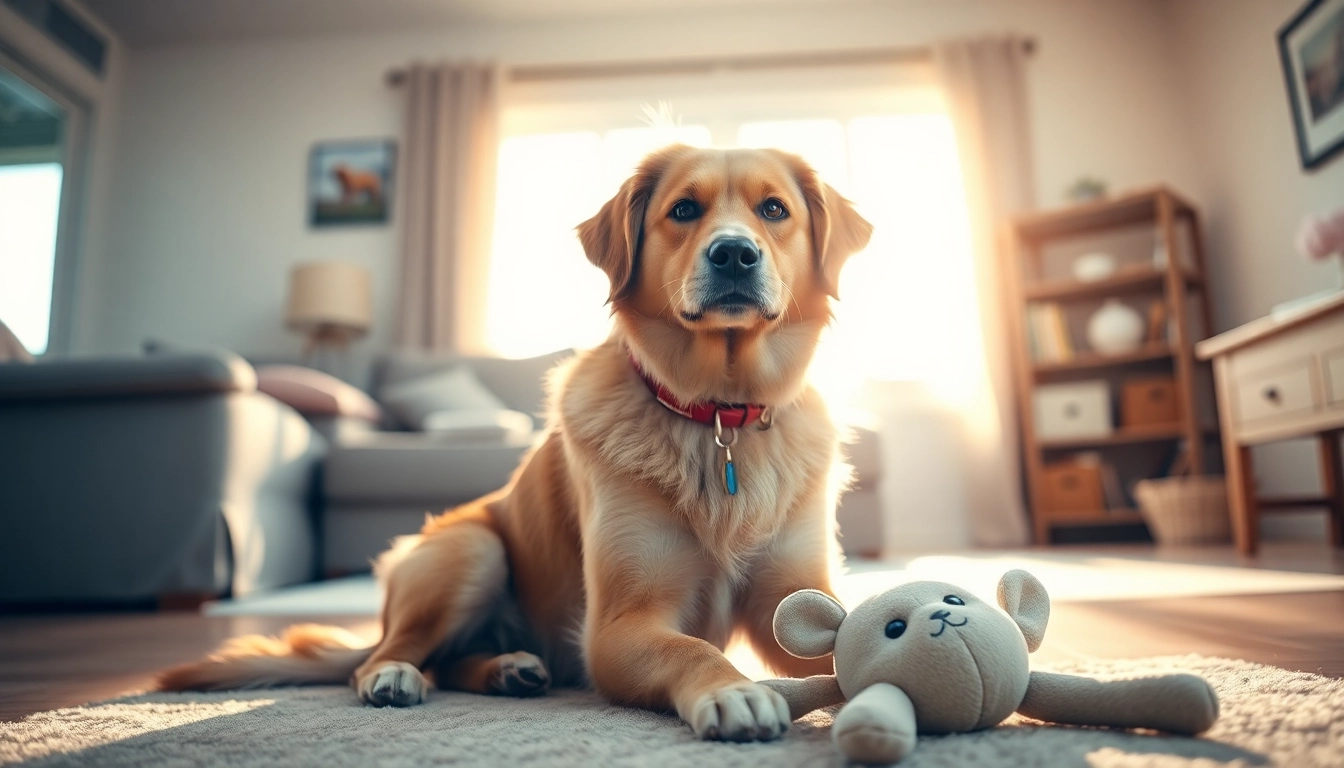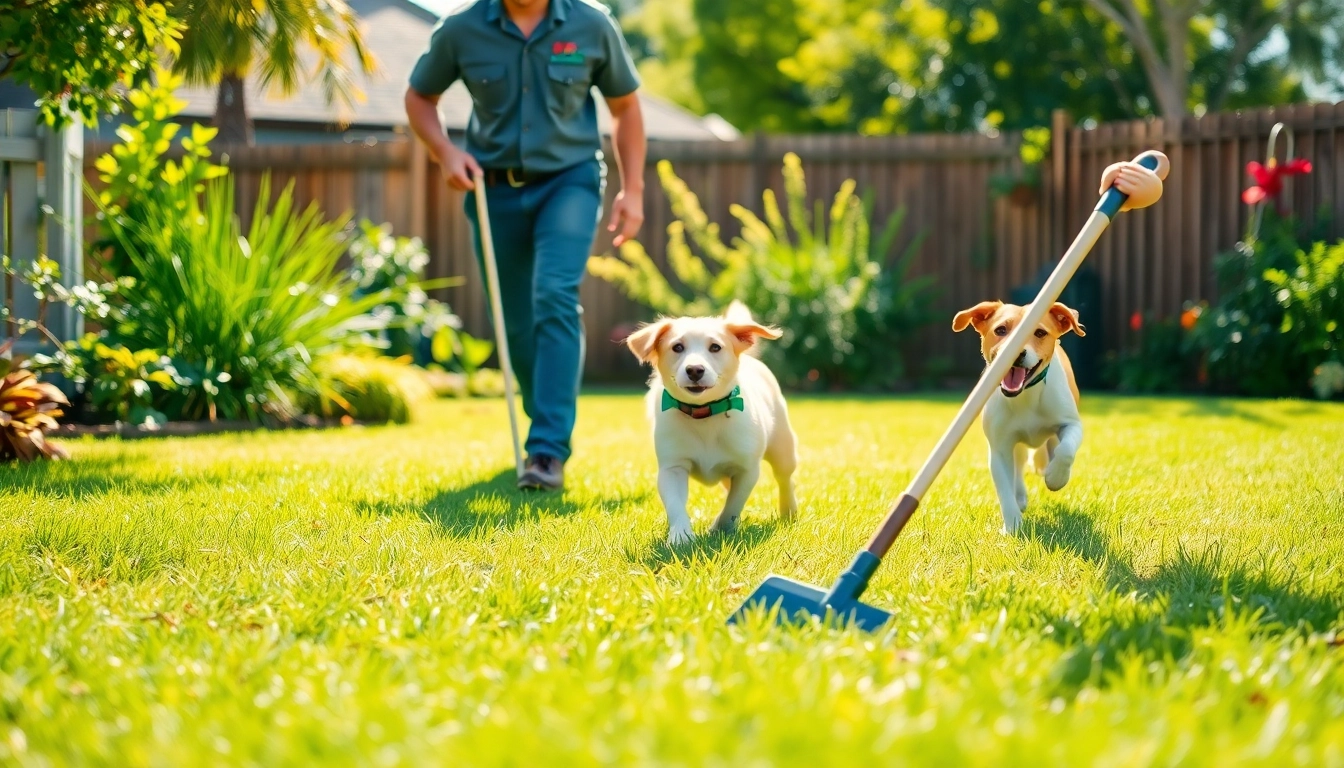Understanding Autism Dogs
What are autism dogs?
Autism dogs are specially trained assistance dogs that help individuals with autism navigate daily challenges and enhance their quality of life. These dogs provide emotional support, promote social interactions, and assist with behavioral regulation for their human companions. An autism assistance dog, also referred to as an autism service dog, is trained to attune to the needs of an autistic person, helping them manage anxiety, sensory overload, and other distressing situations.
The role of autism dogs extends beyond just companionship. They can act as a calming presence in overwhelming environments, helping the individual with autism feel more secure. Additionally, they can assist with communication, encouraging interaction with peers and family members. You can learn more about autism dogs and their importance in supporting autism by visiting autism dogs.
Training and Specializations of Autism Dogs
Training for autism dogs is meticulous and tailored to the unique needs of the individuals they support. Basic commands such as sit, stay, and come are essential, but autism dogs also learn advanced skills for specific situations like leading their owner away from crowded spaces, fetching help, or providing pressure during moments of anxiety.
Additionally, many autism dogs are trained in skills that can mitigate specific behaviors associated with autism, like self-harm or elopement. By providing a physical anchor, these dogs can help children with autism remain grounded in social situations or redirect their focus when they feel overwhelmed. Socialization training is also a critical part of their education, ensuring that the dogs can interact positively with children, family members, and the public.
Benefits of Autism Dogs for Children
The benefits of autism dogs extend beyond emotional support, impacting various aspects of life for children with autism. One of the primary advantages is enhanced social skills. The presence of a dog can spark conversations, helping the child engage with peers and enhancing their social interactions.
Moreover, autism dogs can serve as a means of improving emotional regulation. Many children report feeling a sense of calm and companionship, which can reduce overall anxiety levels. These dogs also promote routine and structure, which can be incredibly beneficial for a child with autism who thrives on predictability.
Ultimately, autism dogs can improve the quality of life not just for the individual with autism, but for the entire family. They can be a bridge to communication and understanding, fostering deeper connections between family members.
Choosing the Right Autism Dog
Factors to Consider When Selecting Autism Dogs
Selecting the right autism dog is a critical decision that requires careful consideration. Families should evaluate their child’s specific needs and how an autism dog can best serve those needs. Factors such as the child’s age, temperament, and trigger scenarios should be carefully assessed.
It is important to involve the child in the selection process whenever possible. Observing how the child interacts with a dog can provide insight into which animal may be the best fit. Additionally, families should consider the dog’s temperament; dogs that are naturally calm and friendly are often considered ideal candidates for assistance work.
Understanding Different Breeds Suited for Autism Assistance
Various dog breeds can serve as effective autism assistance dogs, each bringing unique traits to help with the needs of individuals with autism. Popular breeds for this purpose include Golden Retrievers, Labradors, and Poodles, due to their gentle demeanor and high trainability. Each of these breeds is known for its friendly and adaptable nature, making them great companions for children.
Smaller breeds, such as Cavalier King Charles Spaniels and Beagles, can also serve as autism assistance dogs. They often possess a soothing presence that can be beneficial in managing anxiety and promoting comfort in unsettling environments.
Finding Reliable Sources for Autism Dogs
When looking for autism dogs, it is imperative to connect with reputable service dog organizations and training programs. A good organization will provide transparent training methods and offer ongoing support for both the dog and the family. Prospective owners should look for organizations that specialize in autism support and have positive testimonials from previous recipients.
In addition, some service dog providers offer trial periods, allowing families to spend time with the dog to ensure a good match before committing. This approach can help ensure that both the child and the dog can adapt to one another fluidly.
Training and Bonding with Your Autism Dog
Basic Commands for Autism Dogs
Training an autism dog begins with foundational commands, which establish a basis for the relationship between the dog and the handler. Commands like sit, stay, and lie down are essential for building communication and compliance. Training should be consistent and positive, focusing on rewarding the dog for good behavior to reinforce learning.
More advanced commands can include specific task-oriented instructions, such as retrieve or guide, which can be particularly useful in daily situations faced by the individual with autism. Consistency in training routines is paramount for success.
Building a Strong Relationship with Your Autism Dog
As important as it is to train autism dogs, building a strong bond between the dog and the owner is equally crucial. Engaging in activities like playtime, walks, and relaxation fosters trust between the child and the dog. The bond grows stronger when the dog feels secure in its role as a companion and support system.
Daily routines, such as feeding and grooming, can also serve as intentional bonding experiences that enhance the relationship. As trust builds, the child will feel more comfortable relying on the dog for support and companionship.
Ongoing Training and Socialization
Ongoing training is essential for ensuring that autism dogs remain effective in their roles. Regular practice of commands and skills will keep their instincts sharp and their responses reliable. Socialization is equally important; exposing the dog to various environments and situations will help it remain adaptable and maintain good behavior outside the home.
Parents should also encourage their children to actively participate in the ongoing training, as this reinforces the child’s role in guiding the dog and strengthens their bond. Group training sessions or classes can also provide valuable socialization opportunities for both the dog and the child.
Utilizing Autism Dogs in Daily Life
Integrating Autism Dogs into Family Routines
Integrating an autism dog into the family dynamic starts with establishing routines. Families should develop schedules that include time for walks, training, and interaction with the dog. Involving the child in these routines not only promotes responsibility but also helps the child experience the companionship of the dog in various aspects of life.
By integrating the dog into family outings, meals, and everyday activities, families can create a supportive environment that acknowledges the importance of the autism dog while fostering a sense of normalcy for their child.
Enhancing Social Interactions with Autism Dogs
Autism dogs can serve as effective social facilitators, encouraging interactions between the child and others. The presence of a dog can ease social anxiety, making it easier for the child to engage with peers. Families should take advantage of this dynamic by initiating playdates or outings with other children and their dogs, allowing for organic social interactions.
Furthermore, having an autism dog can help draw positive attention from others, opening up opportunities for the child to communicate and form friendships in a low-pressure environment.
Managing Challenges with Autism Dogs
While autism dogs can profoundly enhance the lives of families, challenges may arise during their transition into daily life. Issues such as the dog becoming overly attached to one family member or behavior problems can occur. Consistent training and reinforcement can mitigate these challenges.
If behavioral issues persist, consultation with a professional dog trainer or an animal behaviorist specializing in assistance dogs may be necessary. Ongoing communication and support within the family are vital to effectively manage any difficulties encountered with the autism dog.
Success Stories with Autism Dogs
Real-life Benefits Experienced by Families
Numerous families have shared their positive experiences with autism dogs, highlighting their transformative effects on daily life. Many have reported significant reductions in anxiety, improved social skills, and an overall enhancement in emotional well-being since welcoming an autism dog into their home.
Families frequently mention the strong emotional bond that develops between the child and the autism dog, which not only fosters a sense of companionship but also contributes to the child’s self-esteem and confidence as they navigate social interactions.
Testimonials from Autism Dog Owners
Testimonials from families with autism dogs offer compelling insights into their benefits. Parents describe how the presence of their dog has opened new avenues of communication with their child, allowing for emotional breakthroughs that were previously challenging to achieve.
These testimonials often reflect the unconditional love and support that autism dogs provide, as well as the joy and laughter they bring to family settings. This is especially poignant in cases where children previously struggled with communication and socialization.
Impact on the Daily Lives of Children
The impact of autism dogs on the daily lives of children with autism is profound. Children often report feeling more secure and less anxious when their dog is by their side, allowing them to engage more fully in educational and social settings. The dogs also help facilitate routine and encourage a deeper engagement with everyday activities.
As children learn to navigate challenges with their dogs, they acquire essential coping skills and emotional resilience, contributing to long-term personal growth and independence. The presence of an autism dog can truly create a transformative experience within the family and influence the child’s journey.



